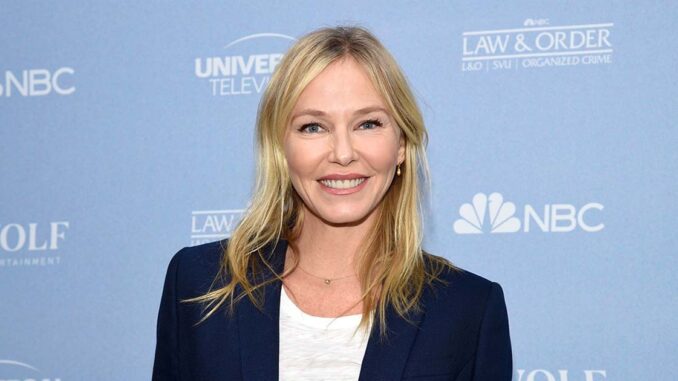
The Unseen Hand: When the Scriptwriters Behind the Scenes Finally Match the Stars Onscreen
Hollywood, for all its dazzling displays of progress and its pioneering tales of empowered women, has long been a kingdom built on invisible foundations, often laid and maintained by men. From studio executives to directors, and crucially, to showrunners – the ultimate creative captains of a television series – the power structures have historically leaned heavily male. This makes a seemingly minor news snippet, like Kelli Giddish, the seasoned actress from Law & Order: SVU, expressing her “giddiness” about working under the show’s first female showrunner, a profound illustration of a deeper, more resonant “female power shift.” It’s a moment that transcends a simple change in leadership; it signals a tectonic plate shifting in the very bedrock of storytelling.
For decades, we’ve witnessed complex, formidable female characters grace our screens, from Detective Olivia Benson, Giddish’s onscreen colleague, to countless others who fight, lead, and inspire. Yet, often the very architects of these narratives, the final arbiters of their arcs and dialogues, have been men. While talented, their perspective, by nature, is external to the lived female experience. This isn’t to diminish their work, but to acknowledge an inherent limit. The “female gaze,” a term often invoked in film theory, isn’t just about what is seen, but who is doing the seeing, framing, and ultimately, defining.
When Kelli Giddish, an actress who has spent years inhabiting the nuances of a female police detective navigating the darkest corners of human behavior, expresses such palpable joy, it speaks volumes. Her “giddiness” isn’t merely about having a new boss. It’s an affirmation, a recognition of an unspoken truth. It’s likely a relief that comes from knowing the ultimate creative vision for her character, and indeed for the entire show, will now be filtered through a perspective that intimately understands the complexities of womanhood – the subtle power dynamics, the unspoken fears, the unique triumphs, and the specific burdens.
Consider Law & Order: SVU, a show that, for over two decades, has unflinchingly tackled sexual assault, domestic violence, and human trafficking. These are crimes predominantly perpetrated against women, often leaving indelible scars that resonate differently through male and female psyches. While the show has always strived for authenticity, the introduction of a female showrunner offers a new layer of depth. It promises narratives less prone to accidental male-gaze tropes, more attuned to the psychological aftermath, and perhaps, more nuanced in its portrayal of victimhood, survival, and justice from a female perspective. It’s about moving beyond what men think women experience, to what women know they experience.
This shift extends beyond just character arcs and plot points. It permeates the very atmosphere of a writers’ room and a production set. A female showrunner, having navigated a traditionally male-dominated industry herself, often brings a different approach to collaboration, mentorship, and problem-solving. There’s a potential for a more inclusive environment, where diverse voices are not just tolerated but actively sought and valued. It can foster a space where conversations about gender, power, and representation are not just academic exercises but integral to the creative process, shaping not only the stories told but also the culture in which they are made.
The “female power shift” illustrated by Giddish’s enthusiasm is a testament to the slow but steady erosion of glass ceilings in an industry that wields immense cultural influence. It’s about moving from symbolic representation on screen to substantive representation behind the cameras. It’s about recognizing that authentic storytelling, especially when exploring the human condition, benefits immensely from a diversity of lived experiences at every level of creative control.
In the end, Giddish’s “giddiness” is more than just personal elation; it’s a silent cheer for progress. It’s a hopeful sign that the stories we watch, the characters we invest in, and the worldviews they reflect are increasingly being shaped by the very voices that have historically been marginalized in the halls of power. It’s a moment that reminds us that true power shifts aren’t always heralded by thunderous applause, but often by a quiet, knowing sigh of relief from those who have waited the longest for their perspective to finally take the helm.
